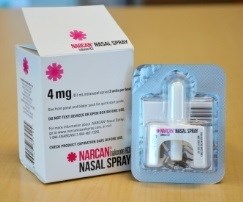Aligning with a province-wide trend, Prince George saw a jump in the number of overdose deaths from illicit drugs in May, numbers from the B.C. Coroners Service are showing.
In all six people suffered drug-related deaths, two-thirds the total of nine recorded for the first five months of the year. Fentanyl was detected in one of last month's deaths, bringing that year-to-date total up to 10.
Echoing other health officials, Northern Health medical health officer Rakel Kling said the novel coronavirus pandemic appeared to have created collateral damage. She said there has been "conflicting messaging" about encouraging users to use in groups so quick action can be taken if there is an overdose while physical distancing is being urged to prevent spread of the virus.
"I think people who are using drugs are just, even more so, using at home and alone where an overdose can't be reversed," Kling said.
Moreover, with the Canada-U.S. border closed, Kling said it appears the drug supply has become even more toxic due to contaminants.
Other things that may or may not have to do with the pandemic, such as unemployment and declining mental health brought on by social isolation may also have played a role, according to Kling.
B.C.-wide, 170 people died of illicit drug overdoses in May, the highest number recorded in a single month. The previous monthly high was 161 deaths in December 2016.
Chief coroner Lisa Lapointe said many of the deaths are related to COVID-19 measures that have had people staying away from supervised consumption sites and using toxic drugs alone.
"Many of those who died lived alone and in fact weren't found for some time," she said, adding border closures have disrupted the usual supply chains, creating a void for those who may be producing more powerful illicit substances without much knowledge.
"If it's not in an actual lab then it might be in somebody's kitchen lab," she said.
Fentanyl-related fatalities spiked after the province allowed a safer supply of drugs to be prescribed in April amid concerns about the sale of more toxic illegal substances during the pandemic.
A temporary federal exemption of the controlled Drugs and Substances Act in response to the pandemic led to new provincial guidelines allowing doctors to prescribe substitute medications including hydromorphone for users of opioids.
Lapointe said the coroners service has found no link between increased prescribing of safer drugs and recent overdose deaths, even as some doctors have expressed concerns about not prescribing medication fearing deaths may be linked to their actions.
"We've heard that there's a lot of fear among physicians and pharmacists that the directive may put them at risk," she said, adding there's no justification for any belief their licences would be suspended.
The coroners service will be discussing the issue with the College of Physicians and Surgeons of B.C., Lapointe said.



